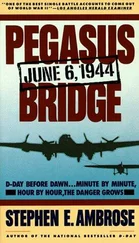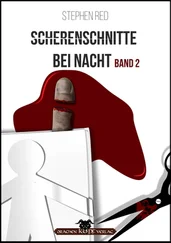Stephen Ambrose - Band of Brothers
Здесь есть возможность читать онлайн «Stephen Ambrose - Band of Brothers» весь текст электронной книги совершенно бесплатно (целиком полную версию без сокращений). В некоторых случаях можно слушать аудио, скачать через торрент в формате fb2 и присутствует краткое содержание. Жанр: История, на английском языке. Описание произведения, (предисловие) а так же отзывы посетителей доступны на портале библиотеки ЛибКат.
- Название:Band of Brothers
- Автор:
- Жанр:
- Год:неизвестен
- ISBN:нет данных
- Рейтинг книги:4 / 5. Голосов: 1
-
Избранное:Добавить в избранное
- Отзывы:
-
Ваша оценка:
- 80
- 1
- 2
- 3
- 4
- 5
Band of Brothers: краткое содержание, описание и аннотация
Предлагаем к чтению аннотацию, описание, краткое содержание или предисловие (зависит от того, что написал сам автор книги «Band of Brothers»). Если вы не нашли необходимую информацию о книге — напишите в комментариях, мы постараемся отыскать её.
Band of Brothers — читать онлайн бесплатно полную книгу (весь текст) целиком
Ниже представлен текст книги, разбитый по страницам. Система сохранения места последней прочитанной страницы, позволяет с удобством читать онлайн бесплатно книгу «Band of Brothers», без необходимости каждый раз заново искать на чём Вы остановились. Поставьте закладку, и сможете в любой момент перейти на страницу, на которой закончили чтение.
Интервал:
Закладка:
A drunken G.I. was standing with a pistol in his hand, two dead Germans at his feet. He had stopped them in their vehicle and demanded gasoline, as he was out. But he had no German, they had no English, he concluded they were resisting, and shot them.
A British major from military intelligence happened to have been driving by. He and his sergeant got out of their jeep to see what was going on. The drunken G.I. pointed his pistol at them and told them to back off.
At that moment, Grant came driving past. The drunk took a shot at him, but missed. The major made a move to disarm the man. The G.I. turned on him and shot him dead, then his sergeant. Grant came running over; the drunk shot him in the brain, then ran off.
Speirs thought the world of Grant. When he heard of the shooting, he and Lieutenant Foley jumped in a jeep, drove to the site, got Grant on a stretcher, and roared off for the regimental aid station. The doctor there was a disgrace, unshaven, unkempt, wearing a badly stained shirt. He took a quick look at Grant and said there was "no hope."
"Bull shit," said Speirs, who put Grant back on the stretcher and roared off again, this time for Saalfelden. Speirs had heard there were some German specialists there. One of them was a brain specialist from Berlin. He operated immediately and saved Grant's life.
Word of the shooting flashed through the billets. E Company went out en masse to find the culprit. He was found trying to rape an Austrian girl in Zell am See. He was a recent replacement in Company I. To the expressed disgust of many of the men, he was brought back to company HQ alive.
He almost wished he hadn't been. Half the company was milling around him, threatening, kicking, swearing vengeance. Before anything more serious happened, Captain Speirs came rushing in, straight from the hospital.
"Where's the weapon?" Speirs shouted at the prisoner.
"What weapon?"
Speirs pulled his pistol, reversed his grip to hold it by the barrel, and hit the man right in the temple with the butt. He started screaming, "When you talk to an officer, you say 'Sir,' " and hit him again.
The G.I. slumped into a chair, stunned. Pvt. Hack Hansen from Grant's 2nd platoon, and close buddy, came running in. He whipped out his pistol. "You son of a bitch," he cursed. "I've killed better men than you." He put the pistol right in the man's face. Four men grabbed Hansen from behind and tried to pull him away, shouting that death was too good for such a coward, but he pulled the trigger. The pistol misfired.
"You ought to have seen the look of that guy," Gordon Carson remarked.
They beat him unconscious, then carried him to the regimental guardhouse and turned him over to the provost sergeant. When he revived, the provost sergeant beat him until the blood ran.
Sink came to company HQ. He strode in and asked Sergeant Carson, "Where's Speirs?"
"Up on the second floor, sir."
Sink went up and got the facts from Speirs. It took the better part of an hour. Sink left, and Speirs came down.
"How'd it go?" Carson asked.
"Pretty rough."
"Well, what did he say?"
"He said I should have shot the son of a bitch."
That he did not is remarkable. One explanation I got from a number of men was-that Speirs must have had some doubt that the arrested man was the right man. When I asked Speirs about this, he replied, "As to the Sergeant Grant shooting you have it right. There must have been doubt in my mind, because summary action never troubled me."
But I wonder if there was not another factor at work. Speirs was not the only man who had a chance to shoot the coward. Grant had an opportunity in the initial encounter. The man who found the I Company drunk could have shot him on the spot, and nearly every man in the company interviewed by me said he wished it had been done. But many of them were at company HQ when he was brought in, wearing pistols, but only one of them actually tried to kill the man, and he was being held back by four others.
Almost every man in that room had killed. Their blood was up. Their anger was deep and cold. But what stands out in the incident is not the pistol whipping and beatings, but the restraint. They had had enough of killing.
Shortly after the incident, Captain Speirs wrote a long letter to Sgt. Forrest Guth, who was in hospital in England and who had written Speirs expressing a fear that he would be transferred to another division. Speirs liked Guth, thought he was a good soldier, and was appreciative of his ability to keep all his weapons in prime condition. He especially appreciated the way Guth could take a file and work on the tripper housing of an M-l and make it fully automatic. (Winters got one of those Guth specials. He kept it and, when he set off for the Korean War, took it with him. Unfortunately, Guth cannot remember today how he did it.)
In his reply, Speirs expressed another side of himself. It was a long chatty letter about the doings of E Company since Guth went to the hospital, full of the kind of information Guth most wanted to hear: "Luz fell off a motorcycle and hurt his arm— not seriously, Sgt. Talbert didn't like being 1st Sergeant so I gave him the 2nd Platoon and Sgt. Lynch (2nd Plat.) is 1st Sgt. now. Sgt. Alley got drunk again and we had to bust him. Lt. Lipton is on furlough in Scotland and is very happy. I'm sweating out a furlough to England to see my wife and baby. Sgt. Powers was on his way home and the truck overturned and he fractured his skull and he is hospitalized. Sgt. Strohl (3rd Plat.) is on his way home to the States. Chuck Grant got in the way of a bullet from a drunk American and his head is not too good—he is in a German hospital near here and is getting better. Sgt. Malarkey just came back from a long stretch in the hospital. Sgt. Rhinehard just came from the Riviera. McGrath won't take a furlough—he is saving his money."
Speirs gave Guth the details on the Bronze Star he was entitled to for participation in Normandy, Holland, and Belgium, and promised to inform him as soon as it came through. He added a postscript: "Clark is Armorer Artificer just now—sent Burlingame back to his platoon—he couldn't keep your Kraut generator going! We have regular electricity and hot water here in Austria.
"By the way, you can wear your 'Presidential Unit Citation' ribbon and an Oak Leaf Cluster on it no matter what outfit you are in—you earned it with the 101 A/B."
The company was breaking up. General Taylor ordered all high point men who had not yet been rotated home to be transferred to the 501, stationed in Berchtesgaden. The 501st was being inactivated and was to serve as a vehicle to transport all high-point men from the division back to the United States for discharge. Others from the old company were in hospital or already discharged. Recruits who had joined up in Mourmelon or Haguenau were now regarded as veterans.
General Taylor made a trip to the States,- when he returned toward the end of June, he announced that the 101st was to be redeployed to the Pacific, after a winter furlough in the States. Meanwhile the War Department insisted that the division undergo a full training regime, a critical process if it was to go into combat again, as more than three-quarters of the division was made up of recruits.
So close-order drill and calisthenics became the order of the day again, along with nomenclature of the M-l, nomenclature and functioning of the BAR, and nomenclature and functioning of the carbine. A road march. Arm and hand signals. Squad tactics. Barracks inspection. Mess kit inspection. Military courtesy and discipline. First aid and sanitation. Clothing check. Map reading. Dry run with the rifle. One solid week of triangulation. Firing on the range. "Thus it went," Webster wrote, "and I with it, in mounting disgust."
Lieutenant Peacock returned, more chickenshit than ever. "We suffered his excesses of training to such a degree," Webster wrote, "that the men who had known him in Holland and Bastogne hated even to look at him. I was so mad and exasperated that, if I had possessed fewer than 85 points, I would have volunteered to go straight to Japan and fight, rather than put up with another day's basic under Peacock."
Читать дальшеИнтервал:
Закладка:
Похожие книги на «Band of Brothers»
Представляем Вашему вниманию похожие книги на «Band of Brothers» списком для выбора. Мы отобрали схожую по названию и смыслу литературу в надежде предоставить читателям больше вариантов отыскать новые, интересные, ещё непрочитанные произведения.
Обсуждение, отзывы о книге «Band of Brothers» и просто собственные мнения читателей. Оставьте ваши комментарии, напишите, что Вы думаете о произведении, его смысле или главных героях. Укажите что конкретно понравилось, а что нет, и почему Вы так считаете.



![Stephen Ambrose - Citizen Soldiers [Condensed]](/books/346737/stephen-ambrose-citizen-soldiers-condensed-thumb.webp)
![Stephan Orth - Behind Putin's Curtain - Friendships and Misadventures Inside Russia [aka Couchsurfing in Russia]](/books/415210/stephan-orth-behind-putin-s-curtain-friendships-a-thumb.webp)





